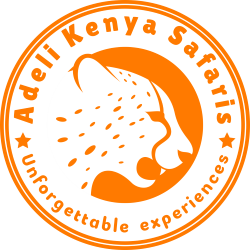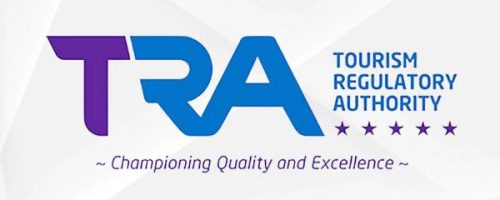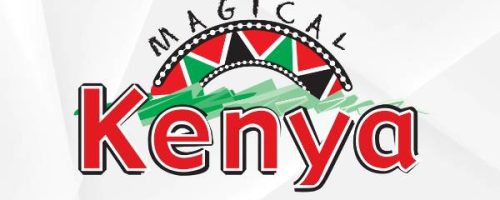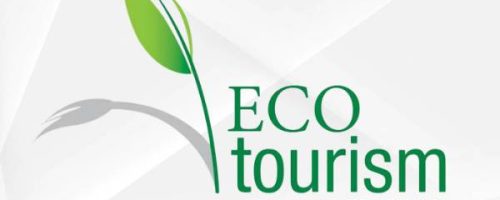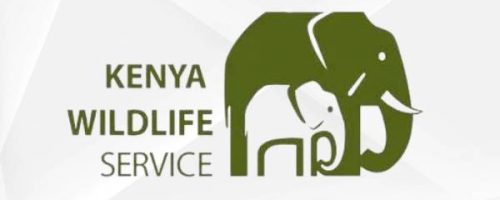| Name of the facility | Baobab Beach Resort and Spa |
|---|---|
| Certification Achieved | Silver |
| Year opened | 1974 |
| Tourism region | Coast |
| County | Kwale |
| Address | Diani beach Map It |
| Telephone/Mobile | +254 (0) 20 2057093-8 |
| [email protected] | |
| Website | https://baobab-beach-resort.com/ |
| Facility Notes | Baobab Beach Resort and Spa is a 323 roomed, 700 bed capacity resort set within 80 acres of tropical gardens, overlooking the Indian Ocean on the world famous Diani Beach. An oasis of tranquility and serenity, the Resort’s picturesque location is nestled on a coral headland overlooking vast stretches of golden beach. Shaded by indigenous coastal vegetation and exotic coconut palms the resort stretches over 500 metres of the beach front offering the ultimate luxury beach holiday. The facility has a total human resource of 450 personnel for its operations. The key natural resource assets or tourism attractions near the resort include Shimba Hills National Reserve, Mwaluganje Elephant Sanctuary and Kaya Kinondo Forest which also serves as a community cultural site. |
| Energy management | Main source of power for the facility is Kenya power grid, the power is metered and monitored on a monthly basis. There are three backup generators with a power output capacity of 500 KvA. Liquefied petroleum gas (LPG) is used for cooking in the entire facility. The facility has solar water heaters at the two distinct units Kolekole and Maridadi for heating water in the guest rooms. Energy saving bulbs are installed throughout the facility for energy conservation. The facility conducts energy audit after every two years to comply with the legal 102; section 6, Energy (Energy Management) Regulation 2012.Staff is sensitized on energy conservation through departmental briefings whereas visitors are sensitized on arrival briefings. Visual sensitization signage such as ‘save energy’ are fixed in strategic areas Boilers are controlled by thermostat to control temperature. Visitors are briefed upon arrival on the need to conserve energy through switching off unnecessary lights and air conditioning. |
| Environmental management | Baobab Beach Resort and Spa has a clear environmental policy that guides its operation. The policy emphasis on continued improvement on sound and sustainable management practices, social responsibility, commitment to environmental protection and conservation of resources such as water energy, and waste management, and compliance to relevant government regulations and legislations. The hotel has an effective Environmental Management System with clear management plans for water and energy conservation, waste management, health and safety within the facility The facility carries out its annual Environmental Audit to comply with EMCA 1999 – Environmental (Impact Assessment and Audit) regulations, of 2003. NEMA reference number NEMA/CP/EA/0439 |
| Chemical use | The facility uses laundry detergents supplied by Odex Chemicals. Material safety Data Sheet (MSDS) for the chemical used in the laundry are available. The facility has automated and programmed laundry washing machines. This ensures efficiency in water use, energy and chemical consumption. The Swimming pools chemical tests are done and recorded daily to monitor the amount of chemical used Fuel is stored in ground level tank of 23000 litres. The tank is connected to a fuel pump and adequately secured to contain accidental spillage. |
| Conservation Criteria | |
| Community Criteria | |
| Solid waste management | Waste separation at the kitchen is conducted at the source and the bins are clearly labeled. Plastics, Metallic (tins), Glass are weighed, recorded and collected every morning by a NEMA licensed company. Some of the organic waste is given to a local pig farmer. Old Makuti for thatching roofs are composted and reused for soil enrichment when carrying out tree planting. To reduce plastic pollution, the facility has installed water dispensers in the bar, restaurant and kitchen areas. The facility also has a strict policy on printing paper. The policy states that all printing should be done on two sides and paper must be recycled whenever possible. |
| Water management | Water for the facility is obtained from a borehole and from Kwale county Municipal water. The water is first treated using a reverse osmosis plant and then pumped into overhead tanks then supplied through gravity to the entire premises. The water is metered at source and sub metered at the main outlets. The water consumption for the facility is analysed on a monthly basis based on the number of guests. The laundry machines water uptake is automated. Laundry is weighed to ensure machines are run at their optimum weight for efficient water use, Low shower faucets are fixed in the guest rooms to reduce water consumption. The hotel has “towel talk” cards in the guest rooms encouraging visitors to re-use towels, to promote water conservation. Sensitization signage for water conservation are fixed in strategic areas within the hotel. Guest rooms are fitted with dual flush toilet cisterns which reduce on the amount of water consumed per flush |
| Visitor communication & education | Guests are briefed upon arrival on the operations and environmental values of the facility. The guest rooms are furnished with guest information folders detailing the operations of the facility. The facility has fixed scientific and local names on trees within the premises. The facility offers guided hotel tours for its guests. Part of the tour involves an informative walk through the nature trail. The facility also has a Resource/ Educational centre dabbed the Ecotourism Centre. Here the facility has put up photos and information on a notice board. The information details the facility’s green practices, CSR activities and accolades. |
| Pollution | The generator is insulated and fixed with a muffler – sound reducing device. The hotel path-lights are fixed with low light emitting bulbs to reduce on light pollution. |
| Environmental conservation | Tree planting activities are conducted within the facility involving both guests and staff. The facility participates on beach clean-up exercises on a weekly basis. Baobab Beach Resort and Spa offers low impact hotel tours and natural trails. The facility is fixed with notices advising visitors against the feeding of monkeys within the premises Baobab Beach resort is a corporate member and supports the Colobust Trust a non-profit organization which aims to protect the Angolan black and white colobus monkeys.Baobab property is located and conserves 45 acres of the remnant of the Eastern Africa Coastal Forests. These forests once ran from Somalia to Mozambique. However there now exists patchy remnants in protected areas. |
| Waste water management | Effluent from the kitchen flows through a grease trap before draining into soak pits. Grey and black water effluent from the facility is managed through septic tanks then pumped to a lagoon wastewater treatment system. The facility has 3 swimming pools which are cleaned via vacuum cleaning and backwash systems. Backwash is conducted for approximately 5 minutes after 3 days. Water effluent tests at the facility are conducted on a quarterly basis in compliance with NEMA Environmental Management and Coordination (Water Quality) Regulations of 2006. The facility has an effluent discharge license. Ref no. NEMA/WQ/EDL 4838 |
| Purchasing and supplies | The hotel purchases its products in bulk to reduce on packaging, whereas meat is packaged in cool boxes. |
| Employment and remuneration/staff welfare | Employees are provided with, food, medical cover, uniform, entertainment centre, transport and accommodation facilities. The staffs are paid in line with the minimum wage. The employees are given letters of appointment, code of conduct and job descriptions upon employment. There is a reward scheme for staff internally recognized as ‘Accolades Display’ where staff efforts are recognized through display of awards at one corner of the reception aimed at staff motivation. The employees are registered and represented under KUDHEIHA workers union. |
| Staff education, communication and awareness training | Employees are sensitized and briefed during departmental/daily meetings. The facility conducts in-house trainings each department has a training schedule, with minimum requirement of one training every month. Notice boards are used to facilitate communication to the staff |
| Cultural preservation and promotion/protection of local sites | The facility contracts a local dance group to perform cultural dances. Every Wednesday, the facility hosts a local Masai Market which is accompanied by traditional Masai dances. The resort offers local cuisines as part of the buffet meals in the restaurant. The facility is decorated with Swahili handicraft and antiquities, paintings and carvings bought from local artists in Diani |
| Benefits to local community/community empowerment | Approximately 60% of the staff is hired from the local area. Casual labourers are hired from the locality. The hotel provides attachment opportunities to students from local polytechnic institutions. Every Wednesday of the week, the local traders are allowed to display their artifacts and crafts within the facility and sell directly to the guests. The hotel supports Kwale School for the mentally handicapped by providing space in the gift shop to sell their cultural artifacts and beadwork directly to guests. Every fortnight, the hotel holds a bingo night. The proceeds from this are given to Kwale School for the Mentally handicapped. The school also gets regular donations of food and linen from the facility. The facility purchases its products such as Fish, vegetables and fruits from local suppliers.The hotel also donates linen to Red Cross Society. In 2014 the facility won a KUONI water award for improving the water catchment system of Kwale School for the mentally handicapped. The facility installed gutters as well as tanks and piping in the school. The facility offers trainee positions for locals who have completed secondary school. The trainee program runs for a year if the trainee is placed in the kitchen and six months in the F&B service. |
| Cultural Criteria | |
| Health and safety | The facility has a safety and health policy that clearly outlines the management commitment to providing adequate control to health and safety risks. The facility has trained fire marshals and fire aiders. The staff have also been trained on firefighting by Moran Fire. The facility has a health and safety committee in accordance with Rule 4 of safety and health committee rule 2004.The facility has first aid kits in major departments. Safety and precautionary signage has been installed at the various departments .The facility has a health clearance certificate from the Ministry of Public Health and Sanitation. The facility provides PPE (Personal Protective Equipment) such as overall, gloves and boots to the staff.Baobab Beach Resort and Spas conducts an annual health and safety audit in compliance to section 11 of the occupational safety and health Act, 2007.Fire equipment including fire extinguishers and fire blankets are strategically placed within the facility and served once in every 3 months. Smoke detectors and a fire alarm system have been installed within the facility. Fire equipment have been serviced. Fire exits and assembly points are properly marked and displayed within the facility. |
| Child labor, abuse and human rights | .The camp has well defined Human Resource policy that guides against employment of minors. Minimum employment age is 18years.The hotel also subscribed to child sex tourism charter. |
| Business Practises Criteria | |
| Entry Date | 12th March 2018 |
